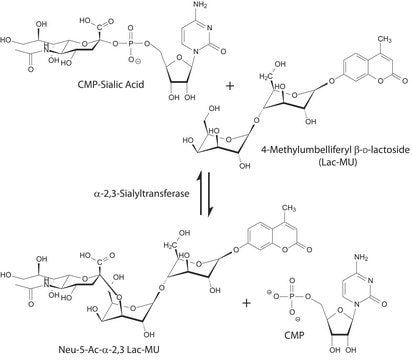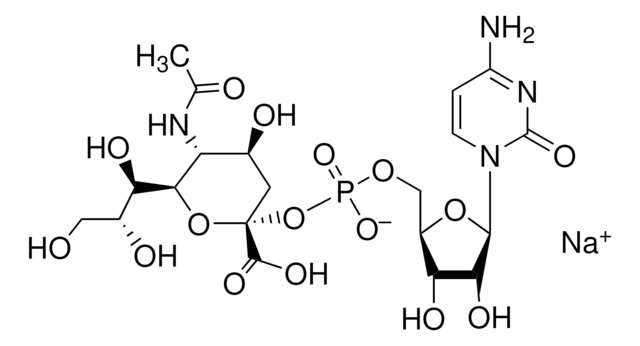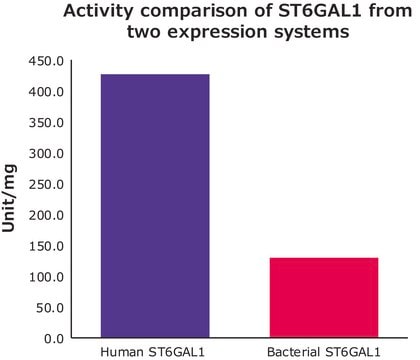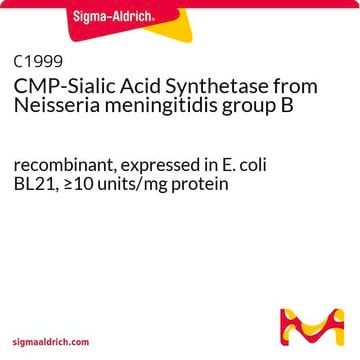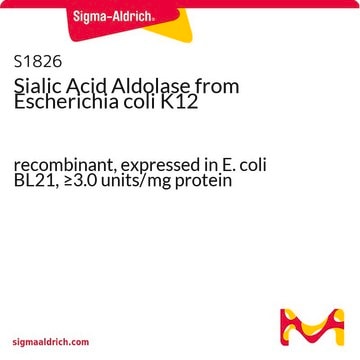S2076
α-2,6-Sialyltransferase from Photobacterium damsela
recombinant, expressed in E. coli BL21, ≥5 units/mg protein
Synonym(s):
β-Galactoside α-2,6-sialyltransferase, CMP-N-Acetylneuraminate:β-D-galactosyl-1,4-N-acetyl-β-D-glucosamine α-2,6-N-acetylneuraminyltransferase
About This Item
Recommended Products
recombinant
expressed in E. coli BL21
Quality Level
form
lyophilized powder
specific activity
≥5 units/mg protein
mol wt
56.8 kDa
shipped in
dry ice
storage temp.
−20°C
General description
Application
Biochem/physiol Actions
Unit Definition
Physical form
Analysis Note
Storage Class Code
11 - Combustible Solids
WGK
WGK 3
Flash Point(F)
Not applicable
Flash Point(C)
Not applicable
Certificates of Analysis (COA)
Search for Certificates of Analysis (COA) by entering the products Lot/Batch Number. Lot and Batch Numbers can be found on a product’s label following the words ‘Lot’ or ‘Batch’.
Already Own This Product?
Find documentation for the products that you have recently purchased in the Document Library.
Customers Also Viewed
Articles
Explore tools for glycosyltransferase synthesis and modification of glycans, such as glycosyltransferases and nucleotide sugar donors.
Explore tools for glycosyltransferase synthesis and modification of glycans, such as glycosyltransferases and nucleotide sugar donors.
Explore tools for glycosyltransferase synthesis and modification of glycans, such as glycosyltransferases and nucleotide sugar donors.
Explore tools for glycosyltransferase synthesis and modification of glycans, such as glycosyltransferases and nucleotide sugar donors.
Our team of scientists has experience in all areas of research including Life Science, Material Science, Chemical Synthesis, Chromatography, Analytical and many others.
Contact Technical Service